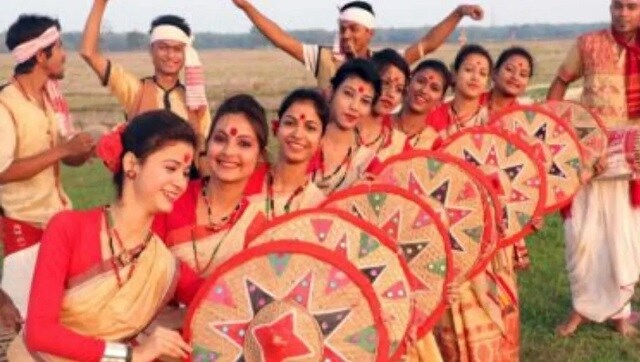
All programmes have to end by 11 pm and organisers and volunteers at functions have be tested for COVID-19 three days before and after the event

The harvest festival of Assam - called Rongali Bihu or Bohag Bihu - will be celebrated from 14 till 20 April in the state of Assam this year. The festival lasts for seven days and marks the beginning of spring. It also marks the Assamese New Year.
Rongali Bihu significance and rituals
As Rongali Bihu is the New Year for the people of Assam, it is celebrated with great joy in the state. According to the Bengali calendar, Bihu falls on the first day of the Magh month. The seven days of Rongali Bihu are Chot Bihu, Goru Bihu, Manuh Bihu, Kutum Bihu, Senehi Bihu, Mela Bihu and Chera Bihu.
On the first day of the festival, people take their cows for a wash while the second day is spent dressing up and exchanging gifts. People celebrate the third day by worshipping deities.
Rongali Bihu is celebrated by organising cultural events that include singing traditional songs. People also wear traditional clothes like saadar mekhela and dhoti. Special dishes like pithas and khaar are made on this day.
Rongali Bihu celebration during
Assam Health Minister Himanta Biswa Sarma has said that Rongali Bihu is going to be celebrated in the state, however, there will be curbs due to the pandemic. He added that the festival will be celebrated with fanfare. “There is no possibility of a lockdown,” he said.
A notification has been issued by the Assam Health Department, mentioning the fresh guidelines to be followed on a "need-based manner", keeping in mind the "3Ts - testing, tracing and tracking" in order to ensure safe celebration of Rongali Bihu and other festivals as the cases continue to rise.
Permission from district administrations is needed for organising any event which will have public gathering, with the number of people likely to gather and the maximum capacity of the venue of the event to be mentioned ahead of seeking permission. All programmes have to end by 11 pm and organisers and volunteers at functions have be tested for three days before and after the event.
The guidelines also mandate that participants be screened for fever before entering the venue and the venue be spacious and open from all sides.